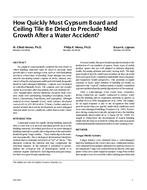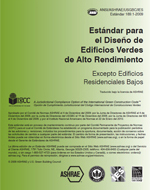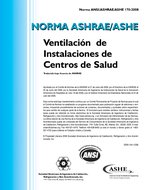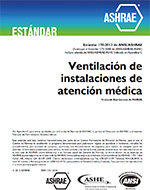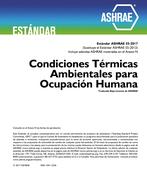Description
We sought to experimentally establish the time frame in which building materials must be dried to preclude mold growth after a water damage event, such as with firefighting activities, a burst pipe, or flooding. Water damage was simulated by inoculating sample coupons of sterile, unused, saturated ceiling tile and gypsum wallboard with molds frequently found in water-damaged buildings. Coupons were incubated at controlled humidity levels. The coupons were not visually moldy at seven days after inoculation, but even minimal (6X – 25X) magnification showed numerous incipient mold colonies; many were sporulating, including Ulocladium, Stachy-botrys, Chaetomium, Penicillium, and Aspergillus. Although reduced at lower humidity levels, mold colonies developed even at 44% to 45% RH in 48 to 72 hours. Further analysis is needed of mold microcolony development on water-damaged material under service conditions, rather than in static chambers.
Authors: W. Elliott Horner, Ph.D., Philip R. Morey, Ph.D., Bryan K. Ligman
Citation: Indoor Air Quality 2001 Moisture, Microbes, and Heath Effects: Indoor Air Quality and Moisture in Buildings Conference Papers
Keywords: November, California, 2001, IAQ
Citation: IAQ Conference: IAQ 2001
Product Details
- Published:
- 2001
- File Size:
- 1 file , 660 KB
- Product Code(s):
- D-8178
